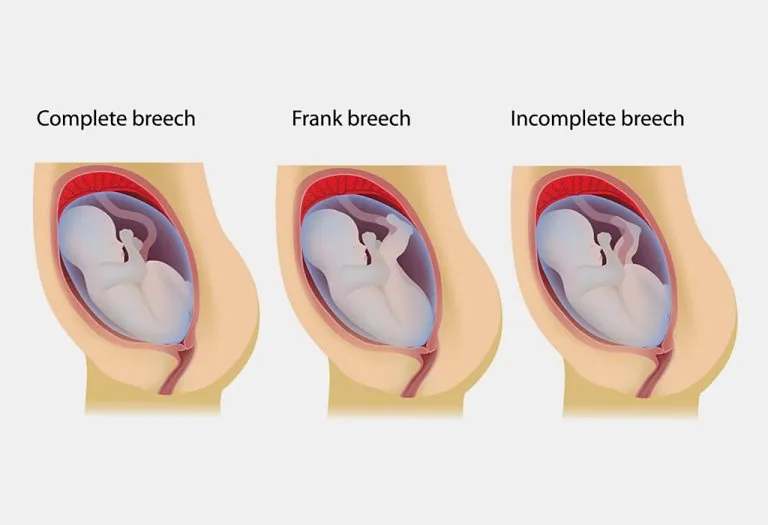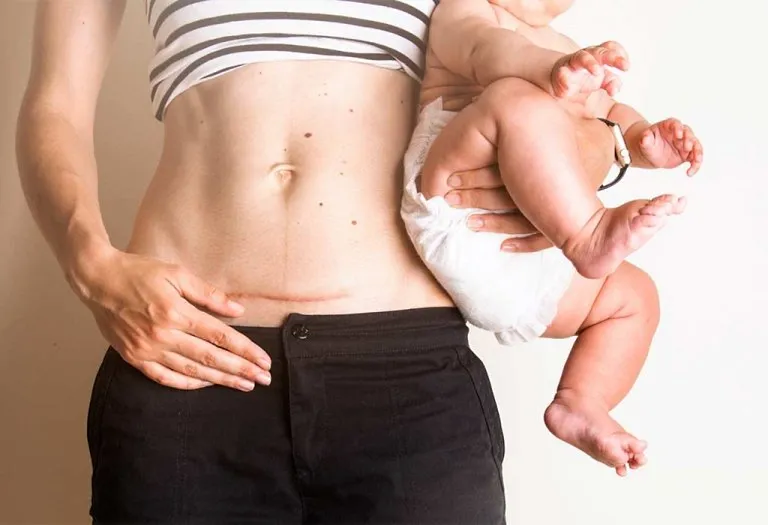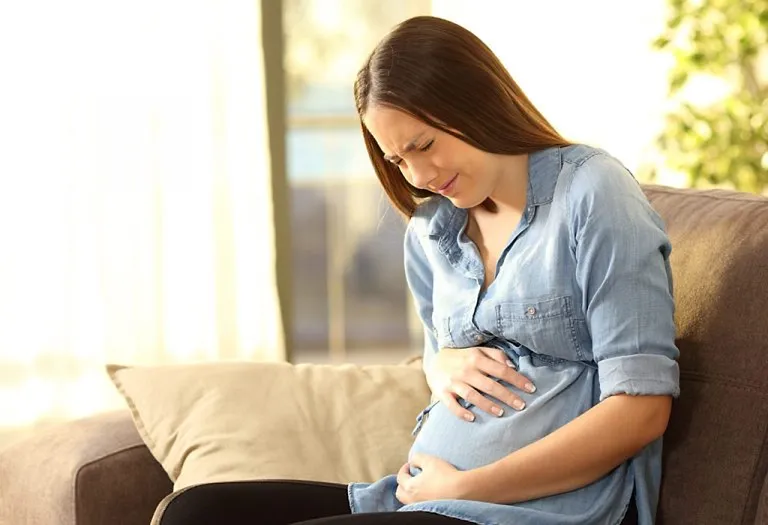12+ Factors That Cause Miscarriage

Every expecting mother wishes for a healthy full-term pregnancy. However, under some unavoidable circumstances, there is a loss of the pregnancy during the early stages. This loss of pregnancy or miscarriage occurs due to various reasons (1). Most of these reasons of miscarriage are beyond the control of the mother. So, why does a miscarriage happen? What are the causes of pregnancy loss? Unfortunately, these questions don’t have a single answer, and there could be multiple reasons why the foetus doesn’t survive in the womb. Many pregnant women avoid some fruits, assuming it as one of the foods that can cause miscarriage, while some women even perceive simple day-to-day activities as risk factors during pregnancy. This article throws light on the various scientific reasons for miscarriage and different ways of avoiding it.
14 Causes of Miscarriage

What causes miscarriage? The conception and growth of a baby inside the womb is a complicated process involving a number of intricate steps. At any stage during this process, there are many things that can cause a miscarriage. Some things that cause miscarriage can be corrected with a lifestyle change, while others need medical intervention. Here are the 14 most common causes of miscarriage in early pregnancy.
1. Abnormality of the Gene or Chromosome
Genetic material known as the ‘gene’ is packed inside the chromosome. It carries the blueprint of the baby’s growth and development. In some cases, certain abnormalities in the genetic material or in the chromosome itself can lead to a miscarriage, especially during the first trimester (2). It is a mechanism of nature to abort the foetus that does not have the necessary competencies to grow and thrive after birth. Many different abnormalities give rise to syndromes like Down’s syndrome, Turner’s syndrome, and cystic fibrosis, which usually results in early termination of pregnancy.
2. Hormone Problems
When women do not produce enough progesterone, the implantation of the fertilised egg is affected. Proper implantation in the uterus is critical for the zygote to hold on and grow. Conditions like diabetes and hypothyroidism also influence the levels of essential hormones of pregnancy (3).
3. Obesity
Obesity or weight issues directly influence the chances of conception and implantation. According to studies, women suffering from obesity have a high likelihood of having hormonal imbalances and problems with reproductive health (4).
4. Uterine Abnormalities
Genetic abnormalities such as septum formation and other non-genetic abnormalities such as fibroids and cervical inconsistency are usually the common cause of misconception in women (5). Such abnormalities also interfere with the process of conception itself. Surgical or medical correction of these defects can be done to avoid future miscarriages.
5. Toxin-Induced Miscarriage
Women who smoke, drink, or consume drugs are at a high risk of pregnancy loss owing to the effect of the toxins present in these substances (6). Accidental exposure to chemicals such as Bisphenol A (BPA) is also harmful to the foetus.
6. Uterine Infections
Infections in the uterus such as mycoplasma, rubella, measles, listeria, mumps, gonorrhoea, parvovirus, chlamydia, etc., can sometimes affect the endometrial wall of the uterus (7). Women who have gone through many gynaecological procedures have an increased chance of acquiring such viral and bacterial infections. However, infections of the uterus or cervix are seen as a rare cause of miscarriage.
7. Congenital Malformations
Deficiency of nutrients like folate, vitamin B12, pregnancy after thirty-five years of age, obesity, and other nutrient deficiencies increase the likelihood of congenital malformations in foetuses. Such malformations that occur as part of various syndromes can result in early termination of pregnancy.
8. Immune Disorders
Certain autoimmune disorders cause recurrent miscarriages. Women who have an autoimmune disease, especially diseases like lupus, produce a considerable amount of antibodies against their own body tissues (8). These antibodies increase the chances of pregnancy morbidity due to severe preeclampsia or placental insufficiency. Early detection of the immune disorder and proper treatment with drugs like heparin and aspirin can increase the chances of a healthy pregnancy.
9. Disorders of Blood Clotting
Some women suffer from a rare genetic disorder that causes an increased tendency of the blood to clot. Medically, it is known as thrombophilia, and women who have this disorder have a high chance of having a miscarriage (9). The increased tendency of blood clotting interferes with the implantation of the fertilised embryo. Also, it affects the growth of the foetus if it manages to hold on to the uterus.
10. Diabetes
Gestational diabetes is a risk factor for pregnancy, and early treatment of the condition is critical for the health of both the mother and the foetus (10). Diabetes increases the chances of foetal malformations and can consequently lead to the loss of pregnancy in the early trimester.
11. Extreme Stress or Trauma
Severe emotional stress or physical trauma, such as a car accident or a fall, can disrupt the hormonal balance and blood flow to the uterus, increasing the risk of miscarriage. Chronic stress may also weaken the immune system, making the body less capable of sustaining a pregnancy (11).
12. Environmental Toxins and Radiation
Exposure to environmental hazards like heavy metals (e.g., lead or mercury), pesticides, or high levels of radiation can harm the developing foetus and lead to miscarriage. Prolonged exposure to such toxins can interfere with foetal development and placental function (12).
13. Advanced Paternal Age
While advanced maternal age is a well-known risk factor, older paternal age can also contribute to miscarriage. As men age, the quality of sperm may decline, leading to chromosomal abnormalities in the embryo that can result in pregnancy loss (13).
14. Placental Problems
Issues with the placenta, such as placental abruption (where the placenta detaches from the uterine wall) or poor placental development, can disrupt the supply of oxygen and nutrients to the foetus, leading to miscarriage (14). These problems are often linked to underlying health conditions or genetic factors.
FAQs
1. Can a sudden shock or fright cause a miscarriage?
While extreme emotional stress or trauma can contribute to miscarriage, a simple fright or sudden shock is unlikely to cause pregnancy loss on its own. However, chronic stress or severe trauma may disrupt hormonal balance and increase risks.
2. Is it possible to miscarry without any symptoms?
Yes, some women experience a “missed miscarriage,” where the foetus stops developing, but the body does not immediately expel it. This can occur without bleeding or cramping and is often detected during a routine ultrasound.
3. Can dental health affect the risk of miscarriage?
Poor dental health, particularly gum disease (periodontitis), has been linked to an increased risk of miscarriage. Infections in the gums can release inflammatory substances that may affect the pregnancy.
4. Does air travel increase the risk of miscarriage?
There is no conclusive evidence that air travel directly causes miscarriage. However, prolonged sitting, dehydration, or exposure to low oxygen levels during long flights may contribute to discomfort or complications in high-risk pregnancies.
These were some of the reasons for early miscarriage. Genetic factors, lifestyle, and environment play a major role in having a healthy pregnancy. In some cases, underlying medical conditions can cause early termination of the pregnancy. The chances of a miscarriage reduce significantly as the pregnancy progresses, and general awareness of the risk factors can greatly help in preventing the loss of pregnancy. If you’re trying to conceive or are in the early stages of your pregnancy and have questions about your health, reach out to a gynaecologist to address your concerns. Having a healthy body is the first step to having a healthy pregnancy.
References/Resources:
1. Miscarriage; NHS; https://www.nhs.uk/conditions/miscarriage/
2. Hardy. P, Hardy. K; Chromosomal instability in first trimester miscarriage: a common cause of pregnancy loss? (Translational Pediatrics); National Library of Medicine; https://pmc.ncbi.nlm.nih.gov/articles/PMC6087828/; July 2018
3. Kaur. R, Gupta. K; Endocrine dysfunction and recurrent spontaneous abortion: An overview (International Journal of Applied and Basic Medical Research); National Library of Medicine; https://pmc.ncbi.nlm.nih.gov/articles/PMC4830160/
4. Malasevskaia. I, Sultana. S, Hassan. A, Hafez. A, et al.; A 21st Century Epidemy-Obesity: And Its Impact on Pregnancy Loss (Cureus); National Library of Medicine; https://pmc.ncbi.nlm.nih.gov/articles/PMC7847782/; January 2021
5. Carbonnel. M, Pirtea. P, Ziegler. D, Ayoubi. J; Uterine factors in recurrent pregnancy losses; Fertility and Sterility; https://www.fertstert.org/article/S0015-0282(20)32745-X/fulltext; March 2021
6. Pregnancy and smoking; Better Health Channel; https://www.betterhealth.vic.gov.au/health/healthyliving/pregnancy-and-smoking
7. Kostova. E, Prins. J, Wely. M; Role of infections in miscarriage (Fertility and Sterility); Science Direct; https://www.sciencedirect.com/science/article/pii/S0015028223014814; November 2023
8. Festin. M, Limson. G, Maruo. T; Autoimmune causes of recurrent pregnancy loss (Kobe Journal of Medical Sciences); National Library of Medicine; https://pubmed.ncbi.nlm.nih.gov/9642970/; October 1997
9. Abu-Heija. A; Thrombophilia and Recurrent Pregnancy Loss (Sultan Qaboos University Medical Journal); National Library of Medicine; https://pmc.ncbi.nlm.nih.gov/articles/PMC3916273/; January 2014
10. You. Q, Jiang. Q, Shani. I, Lou. Y, et al.; Miscarriage, stillbirth and the risk of diabetes in women: A systematic review and meta-analysis (Diabetes Research and Clinical Practice); Science Direct; https://www.sciencedirect.com/science/article/abs/pii/S0168822722010385; January 2023
11. Can too much stress cause early miscarriage?; Mayo Clinic; https://www.mayoclinic.org/healthy-lifestyle/pregnancy-week-by-week/expert-answers/early-miscarriage/faq-20058214
12. Krieg. S, Shahine. L, Lathi. R; Environmental exposure to endocrine-disrupting chemicals and miscarriage (Fertility and Sterility); Science Direct; https://www.sciencedirect.com/science/article/pii/S0015028216613985; September 2016
13. Fossé. N, Hoorn. M, Lith. J, Cessie. S, Lashley. E; Advanced paternal age is associated with an increased risk of spontaneous miscarriage: a systematic review and meta-analysis (Human Reproduction Update); National Library of Medicine; https://pmc.ncbi.nlm.nih.gov/articles/PMC7456349/; May 2020
14. Placental abruption; Mayo Clinic; https://www.mayoclinic.org/diseases-conditions/placental-abruption/symptoms-causes/syc-20376458
Also Read:
Early Miscarriage
Late Miscarriage
Types of Miscarriage
Incomplete Miscarriage
How to Heal After a Miscarriage?
Was This Article Helpful?
Parenting is a huge responsibility, for you as a caregiver, but also for us as a parenting content platform. We understand that and take our responsibility of creating credible content seriously. FirstCry Parenting articles are written and published only after extensive research using factually sound references to deliver quality content that is accurate, validated by experts, and completely reliable. To understand how we go about creating content that is credible, read our editorial policy here.




































